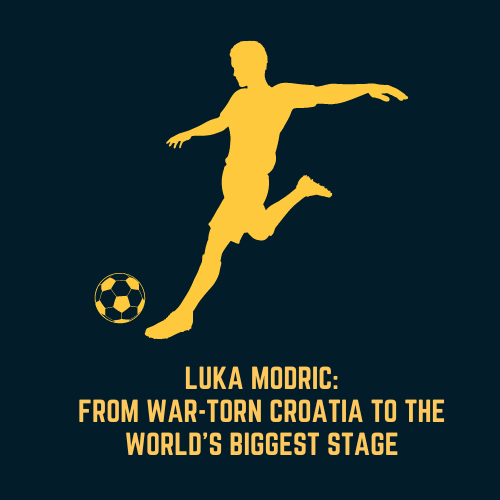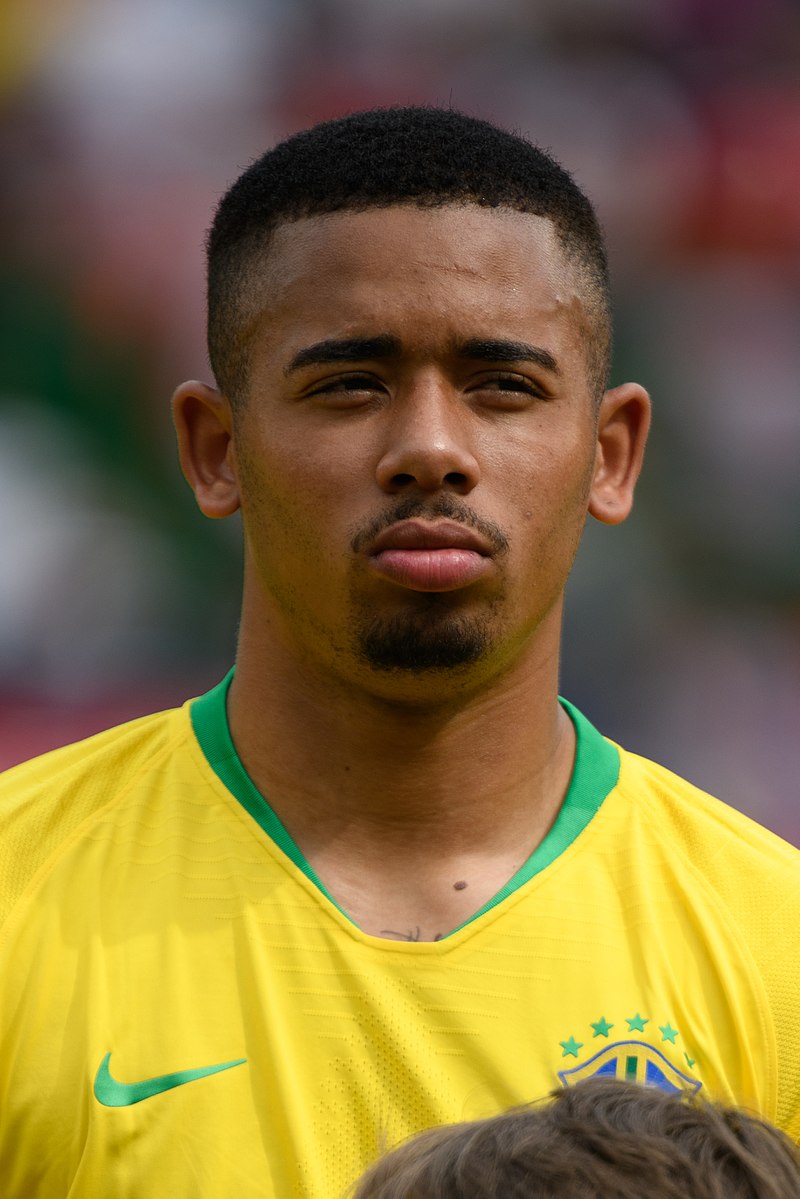Luka Modric: From War-Torn Croatia to the World's Biggest Stage

Luka Modric is a Croatian footballer that has taken the football world by storm. He grew up in a war-torn country like Croatia but managed to change his life for the better. Now he plays football on the biggest stages and has a huge fanbase that supports his every move.
Modric is mainly a central midfielder, but he has the capability of playing as a defensive midfielder and attacking midfielder. Among football fans, Luka Modric is one of the greatest midfielders the football world has ever seen. Additionally, he is also named the greatest Croatian footballer ever.
This title is supported by the fact that he led Croatia to the 2018 Final, and he also received the Golden Ball award in the same tournament. This award is given to the best player of the tournament. Modric has been named the Croatian Footballer of the Year ten times in his professional football career from 2007 to 2021. No Croatian player has ever achieved this.
Luka Modric is also the recipient of the UEFA Men's Player of the Year Award and is the first Croatian to do so. He also won the Best FIFA Men’s Player and Ballon d’Or awards. Therefore, he is the only player other than Lionel Messi and Christiano Ronaldo to win these awards. Modric has also won the Golden Foot, awarded for career results and personality.
Life Before Clubs
Luka Modric was born and raised in the hamlet of Modrići, which is part of a village called Zaton Obrovački, situated on the southern slopes of Velebit, a mountain on the north of the city of Zadar in SR Croatia. He was born on 9 September 1985 and was the oldest child. His parents were Stipe Modric, who haims from Modrici, and Radojka Dopud, who was from Kruševo near Obrovac.
Both of Modric’s parents initially worked in a knitwear family, and he spent his childhood with his paternal grandfather, who lived in a stone house. The house was situated on a road above his neighborhood, and as a five-year-old, he would spend his time shepherding goats.
Luke Modric’s childhood was fraught with the war. The Croatian War of Independence raged while he was young, and it got so bad that he and his family had to flee the area in 1991. Luke’s grandfather was caught and executed by Serb Rebels in December 1991. It is said that they were a part of the police of SAO Krajina.
After the war started, Modric and his family became refugees and had to live in a hotel called Hotel Kolovare for seven years. They then moved to Hotel Iž, both in Zardar. To help, his father joined the Croatian Army and served as an aeromechanic.
In such difficult times, when the enemy was throwing bombs at the city, Modric used football as a way to escape the reality of his current situation. He recalls the war as a time that shaped him as a person. However, as he was young, he was unaware of the extent of hardship and befriended many other children.
Together, they used to play football in the hotel parking lot. In 1992, he entered a primary school and a sporting academy. His family scraped together the fees for the sporting academy, and his uncle helped pay for it too.
Luke Modric was extremely young when he started playing football, and he was not signed by the Hajduk Split, the Croatian football club, as they considered him too young and light. However, later when he displayed his talents at a youth tournament in Italy, he was arranged to be moved to Dinamo Zagreb when he was 16 years old in 2001.
Journey Through Clubs
Dinamo Zagreb
The club. Dinamo Zagreb shaped Modric’s playing style greatly. He gained experience and was able to become a versatile player. He became the Bosnian Premier League Player of the Year when he was only 18 years old. He later confessed that the Bosnian Premier League was physically challenging, and if someone could play there, they could play anywhere.
In the 2005-06 season, Modric signed a ten-year contract with Dinamo Zagreb, and it was his first-ever long-term contract. With the earnings, he was able to buy a flat in Zadar for his family. He became a part of Dinamo’s first team in the 2006-07 season and scored seven goals in 31 matches, which helped his team in the league.
In the next season, in 2007-08, Modric became a team captain and led his club to qualify for the 2007-08 UEFA Cup. During the final playoff stage, Modric managed to convert a penalty in the second and away fixture, and the match finished 1-1 against Ajax. In the playoff, he won the match with a score of 3-2 after extra time.
Despite all his efforts, Modric was unable to help his team reach beyond the group stage. In the last home match, he was given a standing ovation. His fans even held up supportive banners to commend him on his hard work. Thus, his four-year tenure with Dinamo Zagreb ended with him scoring 31 goals and 29 assists.
Modric had many offers from big clubs when he won the second Croatia Cup with a 28-point margin. Chelsea, Arsenal, and Barcelona wanted to recruit him, but he wanted to wait it out.
Tottenham Hotspur
On 26 April 2008, Modric decided to transfer to Tottenham Hotspur, and it was his first Premier League summer transfer. He signed a six-year contract, and the transfer fee paid was 16.5 million pounds. He got the number 14 jersey and said it was in honor of Johan Cruyff.
Luka Modric made his debut on 16 August in a match against Middlesbrough, where his team lost the match 2-1. His start at Tottenham was rough, as he suffered from a knee injury early on and was lightweight according to the Premier league media.
Such comments, according to Modric, often pushed you to show the best version of yourself and prove that they are wrong. He claimed that he may look weak, but he was extremely strong mentally and physically.
After the appointment of Harry Redknapp, Modric was given the role of a central midfielder, a position he was more comfortable with. Furthermore, he also had much more influence over the team from this position, and he could use his talents more productively. This change proved to be fruitful as he led his team to victory in multiple matches after the change.
All of Luka’s coaches loved him, as he could train nonstop and never complain. Furthermore, he was easy to deal with and an excellent player on the team. They also claimed that he could work with and without the ball on the field. Modric was also capable of beating a defender with a trick or a pass, which made him a force to be reckoned with on the field.
In 2011, Chelsea, Tottenham’s rival greatly pursued Modric and tried hard to sign him. They offered a contract for 22 million pounds, which they increased to 27 million. However, both of these offers were rejected. Modric was also forcing a move to Chelsea, and on the final day, the club made their final offer of 40 million pounds, which was also rejected.
After the failed transfer, Tottenham’s manager named him the starter, and he scored a few goals in the season.
Real Madrid
On 27 August 2012, it was announced that Luke Modric had signed a deal with Real Madrid over a 30 million pound transfer fee and a five-year contract. Within two days, Modric had made his debut with the club in a match against Barcelona. He replaced Mesut Ozil in the 83rd minute and helped his club win the match. Thus, within 36 hours of joining the club, Modric had his first trophy for the club.
Modric faced some issues settling into the club, as he lacked the pre-season training that his teammates had had. Furthermore, because the club had veteran midfielders, Modric was not usually included in the starting lineup, and he was limited as a substitute. In the first few months, Modric played out of position.
Modric scored his first goal for Real Madrid in a match against Real Zaragoza, in the last minute, and they won the match 4-0. Within a few months, Modric settled into Real Madrid, and in August 2014, he even signed a new contract, which guaranteed him a position until 2018.
In 2018, Modric’s performance was exceptional. He and his team were one of the best teams of the tournament, due to which he received the Golden Ball. He also won many awards, such as the UEFA Men’s Player of the Year Award, the Best FIFA Men’s Player Award, and even the Ballon d’Or.
Modric has had a long run with Real Madrid. On 24 October 2021, he played his 400th game for Real Madrid and earned them a 2-1 victory. On 28 May, he won the final of the Champions League for the 5th time. Modric renewed his contract on 8 June 2022, which means that he will be with the club till 2023.
Conclusion
Modric began his football journey in a place torn by war. However, he managed to keep his innocence and determination throughout the war. Now, he is performing on the biggest stages in football.
He is a strong-minded player who does not let others’ opinions of him waver his belief in himself. Even if people criticize him, he uses those critiques to better himself and prove them wrong. This mindset has greatly benefitted him, and he is a world-class player who is a success story in the world of football.




